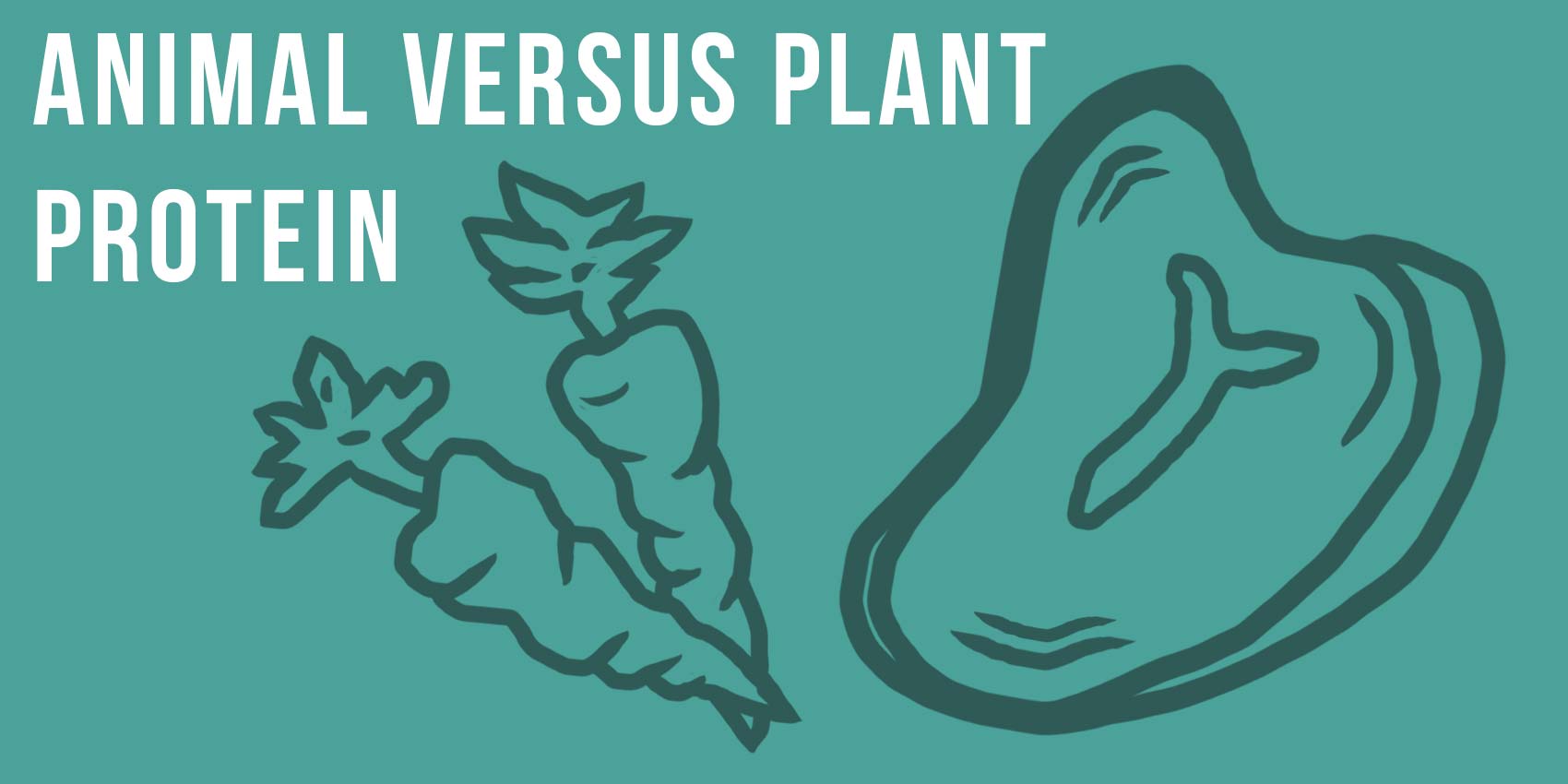30 Sep Animal versus plant-based diets

BREAKING NEWS…
written by Rachel Shapiro
Plant-based diets low in animal protein and high in whole, unprocessed foods can arrest, reverse, and cure chronic diseases such as cancer, heart disease, and diabetes. (Source: the documentary “Forks Over Knives”)

Hold on a minute…that’s a pretty big statement to make! And how come our government, schools, and parents aren’t telling us this? What is a plant-based diet? Don’t I need lots of protein to grow up big and strong? I don’t have any of those diseases, why should I care?
Let’s start with why we want to know what foods can prevent, cure, and reverse serious diseases such as cancer, heart disease, and diabetes. I’m sure all of you know someone in your family that either has, or has had, one of the diseases just mentioned. Treatments for those diseases often include pharmaceutical drugs with unpleasant side effects or surgery. Wouldn’t it be great to know that simply by eating well, we are taking positive steps towards avoiding being sick with a possible life threatening illness?
We all want to be healthy and strong. We’re clear on that. And we definitely don’t want to take medicine unless we absolutely have to. So what do we have to eat to maintain good health? Does it taste good? Dr. T. Colin Campbell, an internationally respected nutrition and health researcher, published a book called The China Study in which he talks about what he discovered through his 20 year study on human health and nutrition. And what he found was surprising.
It all began in the Philippines…Dr. Campbell began his lifelong research into nutrition when he went to the Philippines to do a study on how to prevent malnutrition in children. At that time, he, and the majority of the Western world, were convinced that the best way to feed the starving people of the world was by giving them high quality animal protein. During his research he noticed a surprising trend. It appeared as if the incidences of liver cancer were greatest among the families that ate the most animal protein. This was not the focus of his research at the time so he didn’t look into it too closely.
Some time after that he came across a research paper written by a doctor in India that had found the same thing, this time with lab rats. (Rats, by the way, require almost exactly the same percentage of protein in their diet as humans.) The doctor in India fed one group of rats a diet of 20% protein and another group of rats a diet of 5% protein. He then exposed both groups to a liver carcinogen (cancer causer) and discovered that 100% of the rats on the 20% diet developed liver cancer and 100% of the rats on 5% protein didn’t.
This got Dr. Campbell thinking. He went on to do more studies on the effects of protein in the diet and started experimenting with the type of protein used. He found that rats fed animal protein in excess of 10% of their diet were likely to die a premature death from cancer while rats fed a diet of plant protein in excess of 10% were sleeker, fitter, and did not contract cancer. This went against everything he had always believed about nutrition so he started looking for other people that had found the same thing. He found loads of them all over the world!
Against the traditions of his upbringing (he was raised on a dairy farm where meat was king) and the popular opinion of our times, Dr. Campbell was finding irrefutable (indisputable, undeniable) proof that eating animal protein in amounts greater than 10% of our daily caloric intake was a major cause of cancer. We all have cancer cells in our bodies and diets high in animal protein were acting as an “on” switch for the cancer causing genes.
Humans only need about 20% protein in their diets and the healthiest source for this protein is plants. Spirulina, a form of algae that grows in both fresh and salt water, is a complete protein containing all of the essential amino acids. Beans, green vegetables, and some grains are also great sources of plant-based protein. Peanut butter, almond butter, whole wheat bread, brown rice, and beans are excellent sources of protein. Tofu is high in protein that is easily digested by the body and so are a lot of leafy green vegetables. Farro is a kind of grain that is loaded with protein so you get both fiber and protein when you eat it! Many vegetables have protein as well, so pile them high and you’ll be doing your body good! Soybeans, lentils, chickpeas, and potatoes are even more sources.
You may be wondering if eating a diet high in plant-based protein means that you can’t have a burger ever again or if you have to give up chicken tenders. The good news is that as long as you are eating plenty of whole, unprocessed foods it’s fine to occasionally indulge in your favorite meat product. According to the research given here, you just don’t want to make animal products a part of every meal. However, some people do remove meat entirely from their diet, others remove all forms of animal products. Read the next post to learn a bit about the different sets people do choose.

Popeye’s Challenge:
Spend one week (even a day!) eating only plant-based sources of protein and record how you feel at the end of each day. Be sure to take note of your energy levels, your digestion (your bowel movements), your mood, and your ability to concentrate.
Then spend one week eating your normal amount of animal protein and record the same information.
Was there any difference in the way your body felt? How about your mood? Did you have more or less energy when eating the plant-based protein?




Post Question:
Do you eat animal products? Why or why not?
Answer the post question here
What's being said